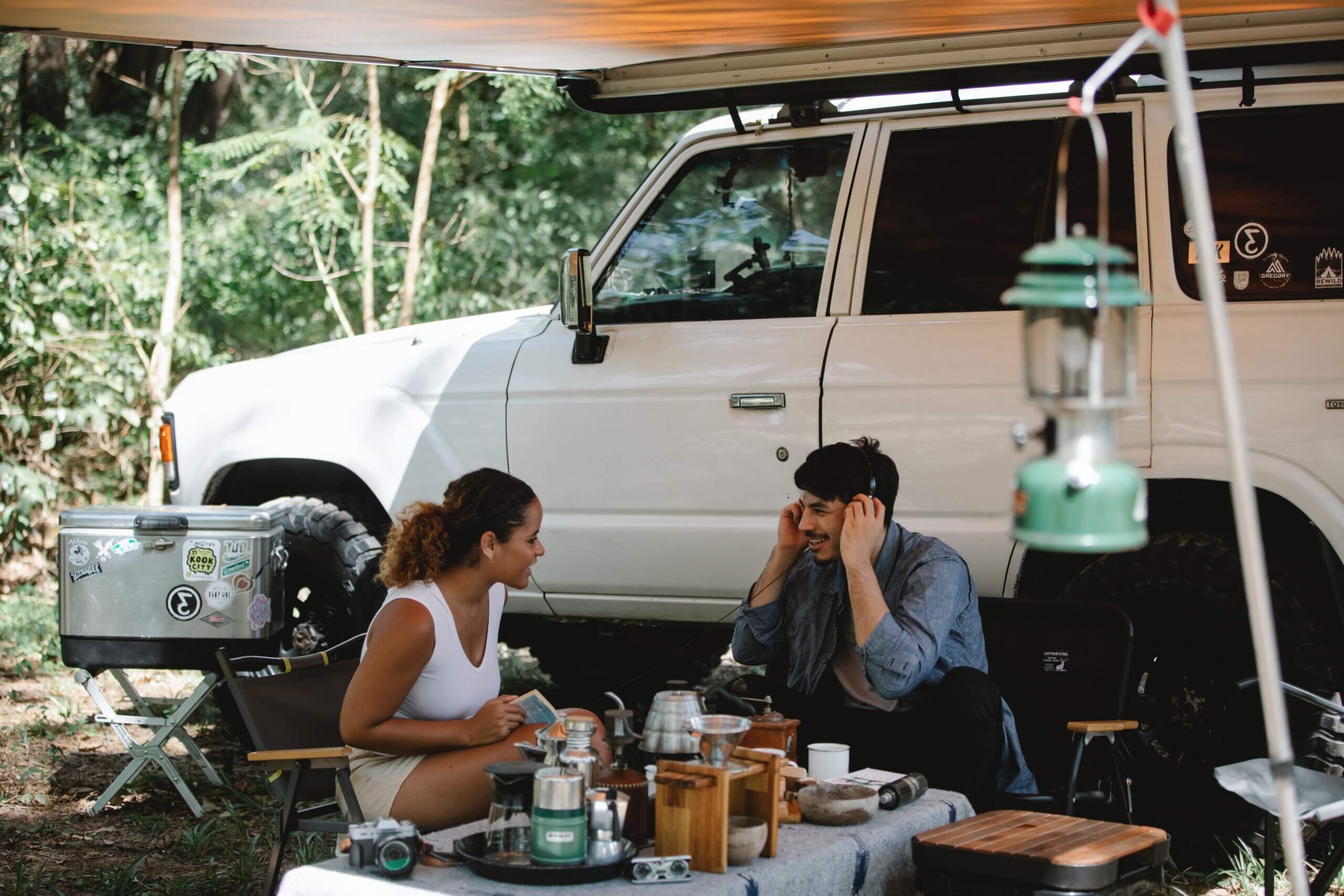
Vanlife Expo: A must-see event for adventure and freedom enthusiasts
At the heart of the passion for freedom on wheels is an unmissable event in France: the Vanlife Expo.

During your RV trip, you will spend a lot of time on the road. However, you will sometimes need to park in order to sleep, eat or have a break. You may also choose to stay at one place for several days and park your car in order to visit a city walking. Parking a recreational vehicle can be tricky at some point. Depending on the country and the areas you are traveling to, you will have to follow different rules. Here is how it works!
The first thing you need to know is where do you want to park your RV? Are you planning to park in the busy streets of a big city or in a proper camping spot? Of course, the difficulties won’t be the same in those two situations. It will also depend on what type of recreational vehicle you will drive during your trip.
Let’s be honest: cities are not the easiest place to park your recreational vehicle. If you are planning your road trip during busy seasons, you will need a lot of patience. But it is possible ! More and more cities arrange parking spots for motorhomes where you will find a spot more easily.
If you want to park on public roads, you are allowed to just like any other motorized vehicles. However, depending on the country and the city, you might not be able to stay several days at the same place or sleep in your RV. You should definitely ask for information when arriving in the city.
No matter where you are, be careful to park correctly without obstructing the visibility or covering up signs. You must leave enough space on the road for the cars to drive properly and on the pavement for pedestrians to walk.
If you want to make sure you will find a spot to park your recreational vehicle, you may want to book a spot in a campingsite. By doing so, you will be sure to have a place to sleep at night. Moreover, depending on the campground, you may have access to water, showers, electricity, etc.
Of course, this solution is not free but it is a good option to refill your stock from time to time. You can benefit from the campsite’s electricity to recharge your batteries. Moreover, a campingsite is great to meet other vanlifers. You will be able to live in community during your stay.
Usually, the parking spots in a campingsite are flat and easy to access. Parking will be easier than in the streets. Depending on the type of recreational vehicle you have, we advise you to place a couple of jacks at the rear under the frame to be more stable.

That is THE question! When we think of vanlife, we imagine living in nature, waking up surrounded by trees and butterflies. Depending on the countries you are visiting, it can be done. However, in some countries, you are not allowed to do wilderness camping.
Australia is usually seen as a paradise for vanlifers. You can see on social media a lot of people doing wild camping in this country. Therefore, it might seem surprising but in Australia, wild camping is not officially allowed. With that being said, it is widely tolerated.
In order to avoid issues with locals, make sure to not camp on places where you can see a “no camping” sign. Try to avoid camping in the cities streets, on the roadside and, of course, on private areas.
We have some good news for you! Wild camping is totally and officially allowed in New Zealand. You can park your car and sleep in any parking spot. Make sure to not interfere with the locals life and park correctly.
You may also want to pay attention to some places. Even if wild camping is allowed, some spots are protected. In that case, you will find a “no camping” sign to inform you.
In the United States as well as in Canada, wild camping is allowed. You can park your recreational vehicle in US national forests and grasslands and on the Canadian territory. Like in New Zealand, you will have to pay attention to some places marked with a “no camping” sign. Indeed, there are some protected places or reservations to take into consideration.
In Europe, wild camping becomes harder. Every country has its own rules but generally it is not as tolerated as in other continents. For example, in France or in the Netherlands, wild camping is forbidden.
More rurals places like Scotland are more tolerant about wild camping. If you stay in the countryside and if you don’t install a big camping spot, you should be fine. However, we advise you to ask for information to the local authorities.
Since wild camp is not always officially and entirely established, you should adopt some habits in order to avoid difficulties and conflicts. The first thing is to arrive late and leave pretty early so that you don’t interfere with locals.
To wild camp, your master word should be “respect”. Respect the place, nature, animals and people. Do not spread your stuff everywhere and try to be as discreet as possible. If necessary, ask for permission before settling down. Of course, don’t forget to clean up before leaving.
Finally, be sure not to spread out too much. If you want to do wild camping and don’t know if it is really allowed, at least try to stay discreet. If you are pitching 5 big tents, lighting a campfire and playing some music, it will probably get you into trouble. Otherwise, if you are sleeping in your recreational vehicle and do not bother anyone, you should be fine.



At the heart of the passion for freedom on wheels is an unmissable event in France: the Vanlife Expo.

More than 1.8 million viewers tuned in to M6’s Capital to discover a new and fast-growing phenomenon: the exchange of leisure vehicles, a good deal that’s becoming increasingly popular!

Discover Yupwego, the tailor-made insurance for all your trips abroad. Whether you’re away for a weekend or several months, enjoy personalized coverage and services tailored to your needs, so you can travel with peace of mind, wherever you are.
Message
We will get back to you as soon as possible.
Find the answers to the most frequently asked questions